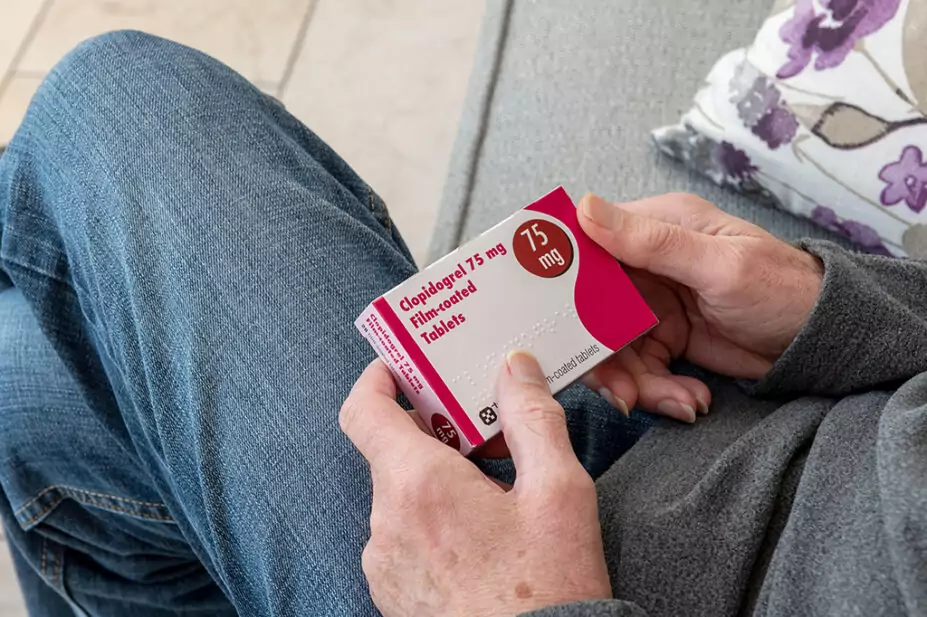
PURPLE MARBLES / Alamy Stock Photo
Patients at risk of stroke should be offered pharmacogenomic testing to see if the drug clopidogrel would be a suitable treatment for them, the National Institute for Health and Care Excellence (NICE) has said.
In draft guidance published on 19 May 2023 — now open for consultation — NICE says that genetic testing is a cost-effective use of NHS resources in patients who have had an ischaemic stroke or transient ischaemic attack (TIA).
Clopidogrel, an antiplatelet medication, is currently recommended for these patients to reduce the risk of a future stroke. However, around 32% of people in the UK have a variant of the CYP2C19 gene, which means that the drug will not work as well for them. Evidence has suggested that people with these variants have around a 46% increased risk of another stroke when taking clopidogrel compared to those without them.
Laboratory testing would cost £139 per test, but if this is not available, Genomadix Cube point-of-care tests, which cost £197, could be used instead, NICE said. If gene testing shows that a patient has one of these variants, they can then be offered an alternative treatment.
Mark Chapman, interim director of medical technology and digital evaluation at NICE, said that “treatment with clopidogrel is effective in preventing further strokes for the majority of people who don’t have the gene variant. But, until now, doctors have not known who cannot be treated with clopidogrel until after they’ve had a second stroke or TIA and that could be too late.
“If the CYP2C19 variants are found, other treatment options can be used. This test ensures we’re getting the best care to people quickly, while at the same time ensuring value for money for the taxpayer.”
There are around 100,000 cases of stroke in the UK each year, and around 43,000 are recurrent strokes, according to NICE. In addition, around 46,000 people in the UK have a TIA for the first time each year, indicating that they are at greater risk of a stroke.
NHS Tayside has already begun using gene testing for clopidogrel suitability — the first healthcare system in the UK to do so. Alex Matos, specialist clinical pharmacist in stroke at NHS Tayside, who is involved in the pilot initiative, said he read the NICE draft recommendation (which applies in England and Wales “with great satisfaction”.
He said: “Genotyping stroke patients and personalising antiplatelet prescribing based on individual genetic characteristic can significantly improve treatment effectiveness; reduce stroke re-occurrence and the consequent disability and cost.
“From my experience, patients welcome and are grateful to the NHS when this test is offered to them. This is the perfect example of considering the individual and providing person-centred care with improved outcomes.”
- This article was updated on 22 May 2023 to state that Alex Matos is involved in the genetic testing pilot at NHS Tayside and not clinical lead


